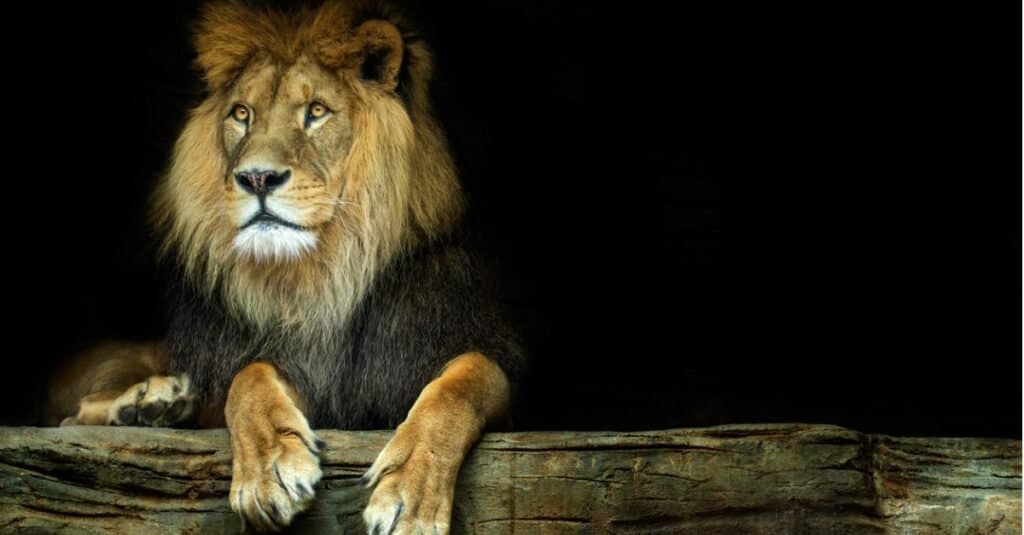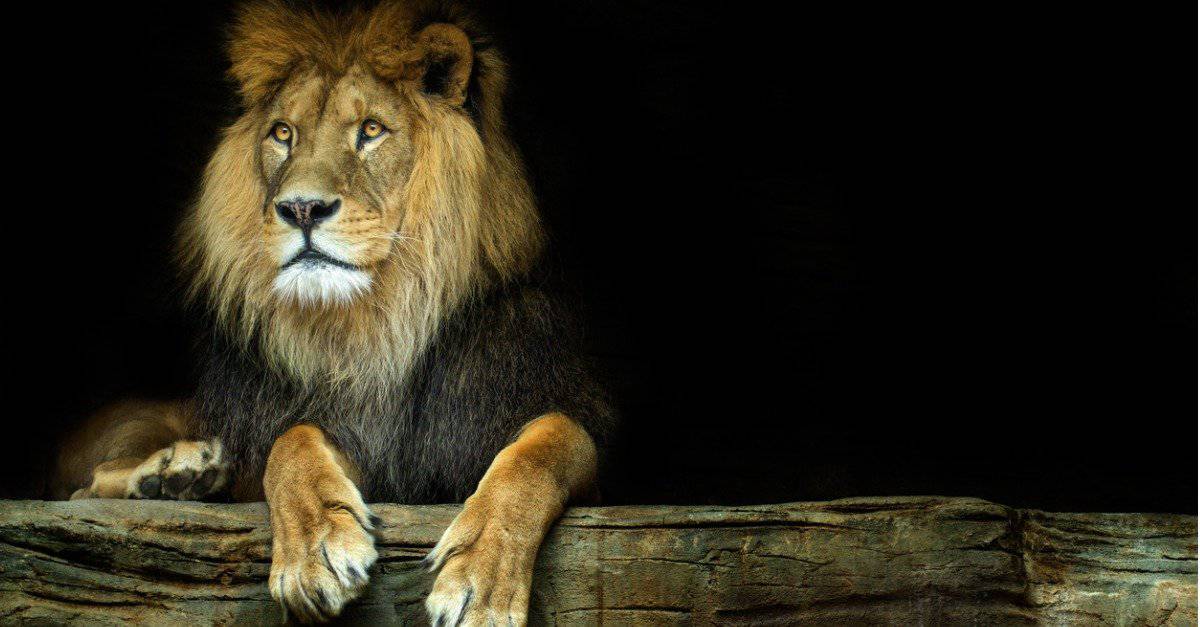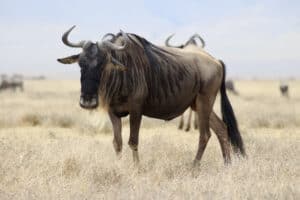In the vast savannah of language, where idioms roam like majestic beasts, one particular phrase stands tall. It commands attention, evoking a sense of danger and a degree of adversity: a lion’s den. Deeply ingrained in our cultural lexicon, this vivid saying conjures images of a formidable challenger. It refers to an intimidating environment where courage is tested, and one’s mettle is pushed to its limits. But have you ever wondered about the fascinating origins and deeper meaning behind this timeless expression? Join us on an exploration through history to discover the meaning and origin of the phrase a lion‘s den.

The phrase
a lion’s denconjures images of a formidable challenge.
©iStock.com/Denisapro
Meaning
This idiomatic expression typically refers to a dangerous or challenging situation, often characterized by hostility, confrontation, or intense scrutiny. Over time, the phrase a lion’s den has come to represent a perilous or challenging situation. It has become a metaphorical expression used to describe environments or circumstances that are antagonistic, combative, or fraught with risk. One must exhibit bravery, resilience, and the ability to face and overcome danger.
Origin
We can trace the origin of this saying back to the biblical story of Daniel in the lion’s den. This famous tale is in the Book of Daniel in the Old Testament. Daniel was an adviser to the King of Babylon. Authorities accused him of violating a decree that forbade praying to anyone except the king. Officials throw Daniel into a den of hungry lions as punishment for his religious beliefs. Despite the perilous circumstances, Daniel’s faith and courage allow him to survive unharmed. God sent an angel to shut the mouths of the lions so that they would not hurt him. The next morning, when the king, Darius the Mede, went to check on Daniel, he found him unharmed.
The story of Daniel in the lion’s den has been widely retold throughout history. It stands as a symbol of courage and divine protection. Over time, the phrase a lion’s den has become a metaphorical expression used to describe vicious or contentious circumstances.
Contemporary Uses
In contemporary references, a lion’s den describes situations in which individuals find themselves surrounded by people or groups with opposing views or ideologies. It can describe a situation in which someone, such as a politician or a business executive, faces criticism or opposition. A CEO defending a company’s unfavorable decisions might describe the heated shareholders’ meeting as a lion’s den. The phrase is apropo when public figures or celebrities face a belligerent or difficult audience, such as a contentious press conference or a controversial interview.
An individual attending a gathering or event where they hold a minority opinion or belong to a different social or cultural group might feel like he is in a lion’s den. A defendant who is facing an angry jury or an aggressive cross-examination by opposing counsel might feel that she is in a lion’s den.
Examples in Literature and Media

In Shakespeare’s play
The Merchant of Venice, Portia refers to the court as
a lion’s den.©Bruce Rolff/Shutterstock.com
This expression is often in modern media, from literature and film to television and music. The idiom evokes the concept of facing danger or intense challenges.
Classical Reference
The phrase a lion’s den appears in Act IV, Scene I of Shakespeare‘s play The Merchant of Venice. In this scene, Portia, disguised as a young male lawyer, delivers a powerful speech known as the “Quality of Mercy” speech. Within this speech, she refers to the court as a lion’s den. The phrase suggests that the court, where Shylock’s trial takes place, is a hostile environment in which Shylock faces scrutiny and potential harm.
Television and Film
In season three of the television series Mad Men, Don Draper uses the phrase a lion’s den during a conversation with his protégé Peggy Olson. Within this so-called den, one must be prepared to face challenges and potential setbacks.
In The West Wing, a politically themed show from the late 90s, Toby Ziegler refers to Congress as a lion’s den, while discussing the difficulties of achieving political goals and navigating the challenges of the legislative process.
In the film adaptation of Suzanne Collins’ novel of the same name, The Hunger Games, a lion’s den refers to the treacherous arena in which the participants must compete.
Music
Many different composers and bands have used the expression a lion’s den in their lyrics. The British band Genesis released a song titled The Cinema Show in 1973. The song contains the lyrics “In the lion’s den, I’ll wait ’til the kingdom comes.” The song uses the phrase as a symbol of waiting for a long and difficult situation to resolve itself.
Lion’s Den by reggae artist Damian Marley explores themes of struggle and perseverance. The chorus says “And I say now Lion’s den, it don’t frighten we.” Marley’s lyrics convey a sense of strength, resilience, and reliance on a higher power for protection and guidance.
Thank you for reading! Have some feedback for us? Contact the AZ Animals editorial team.








